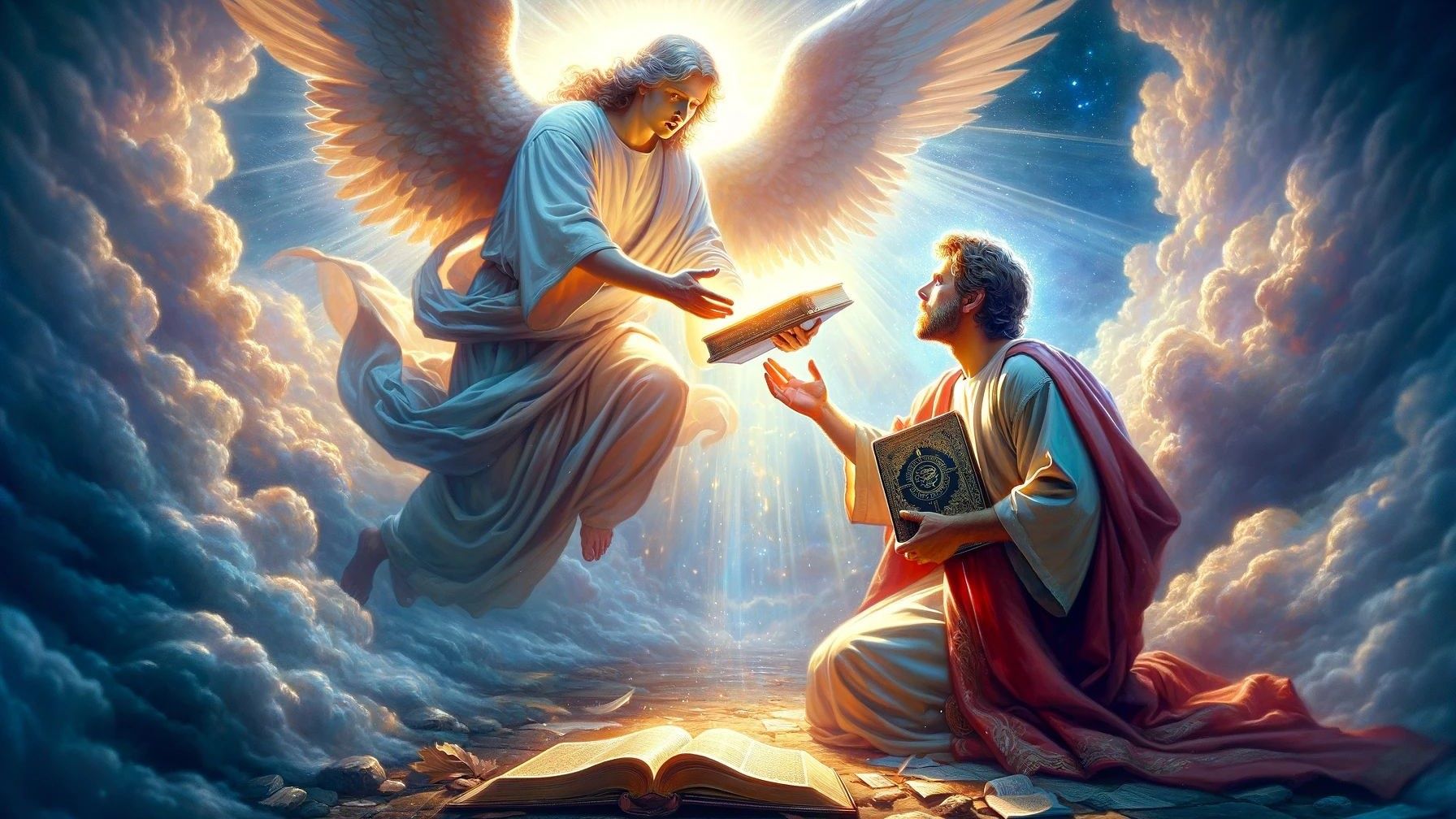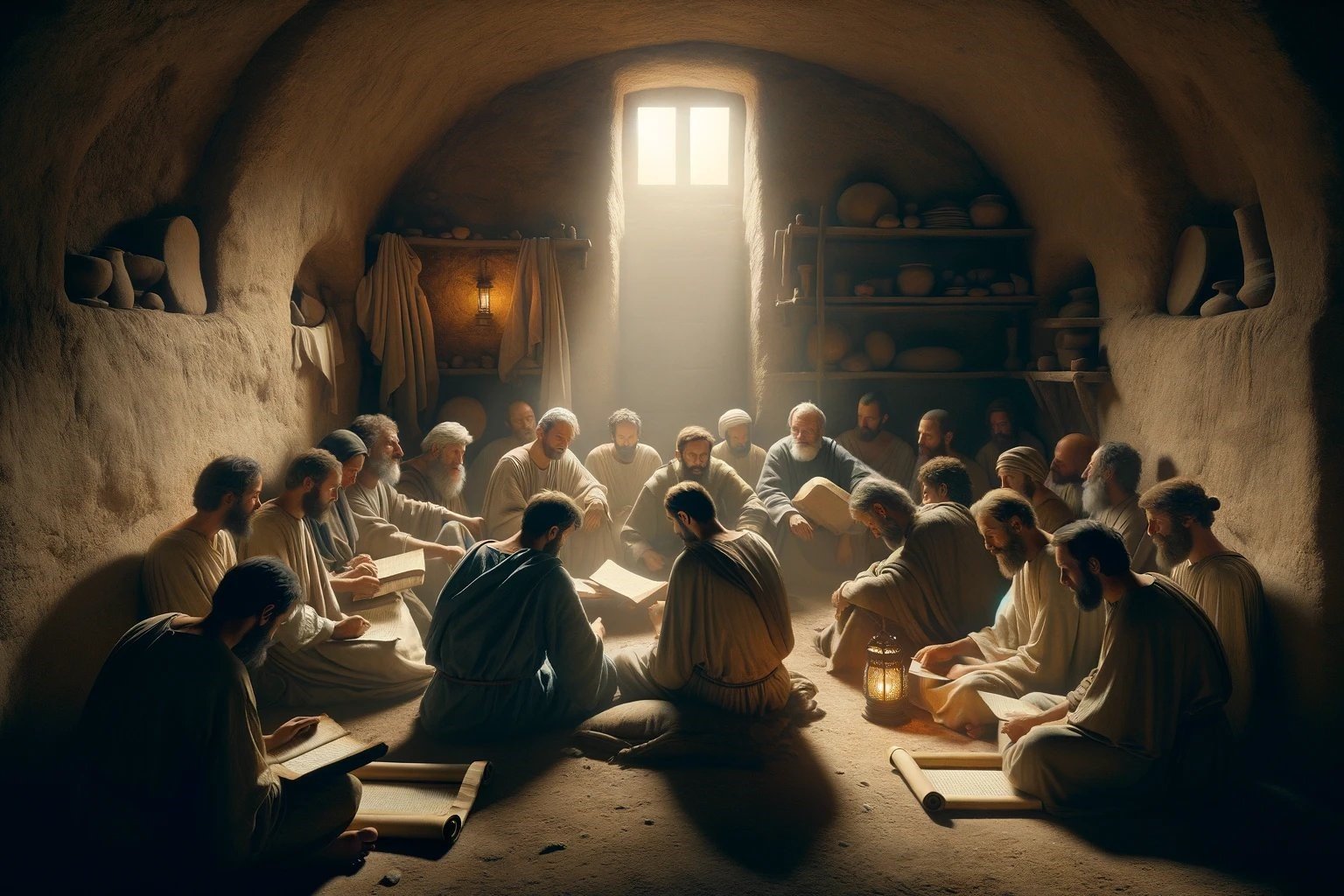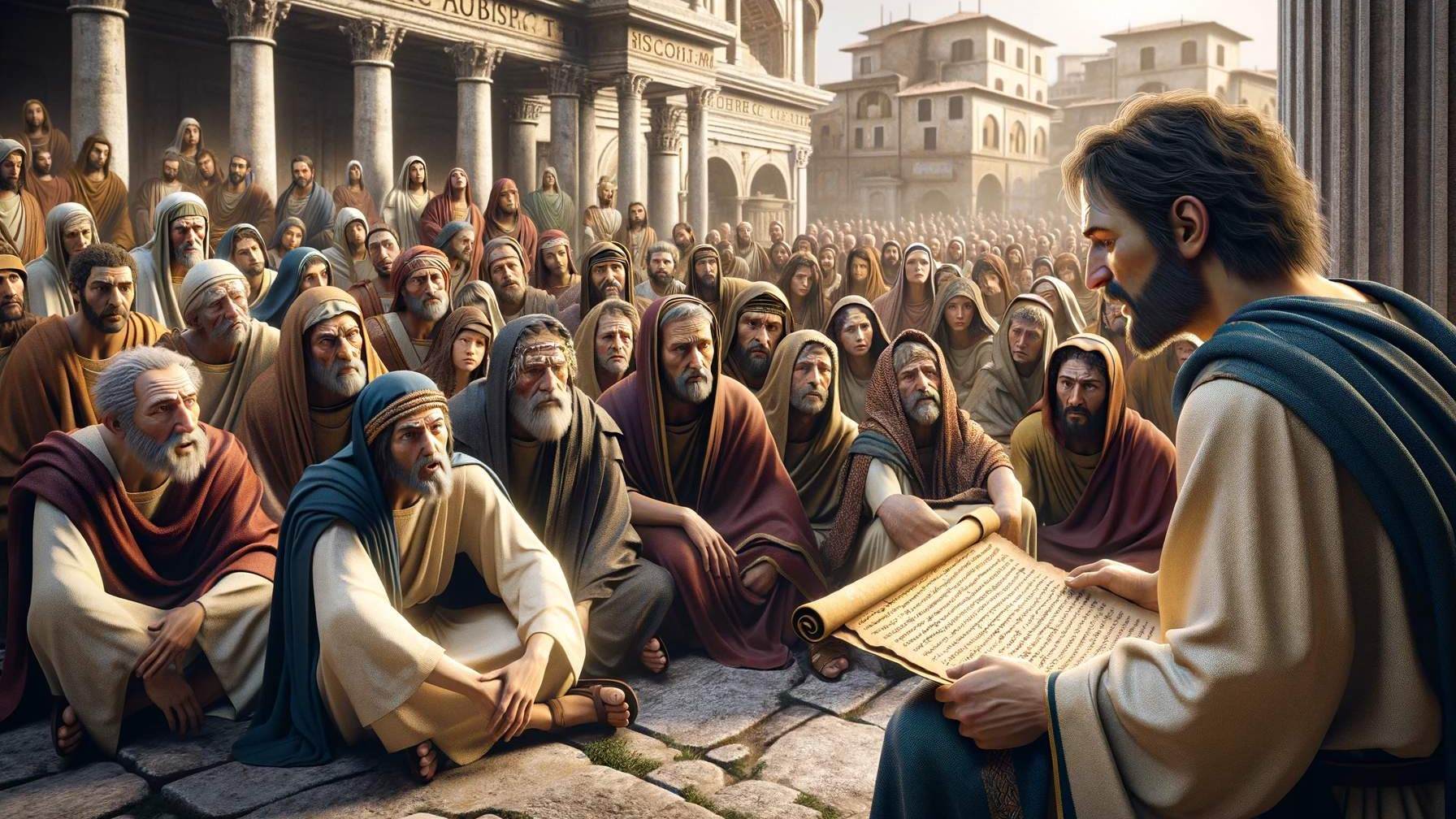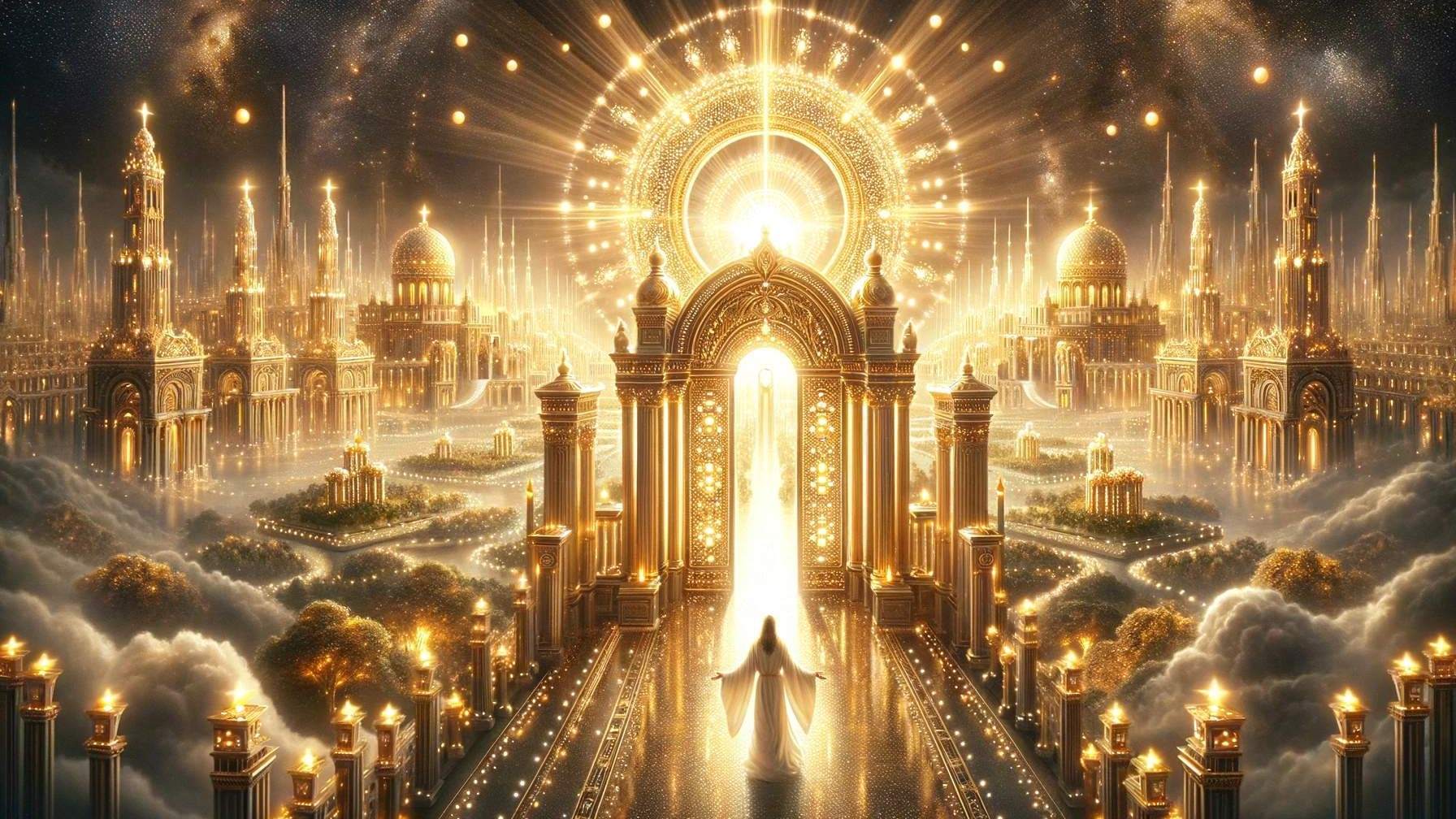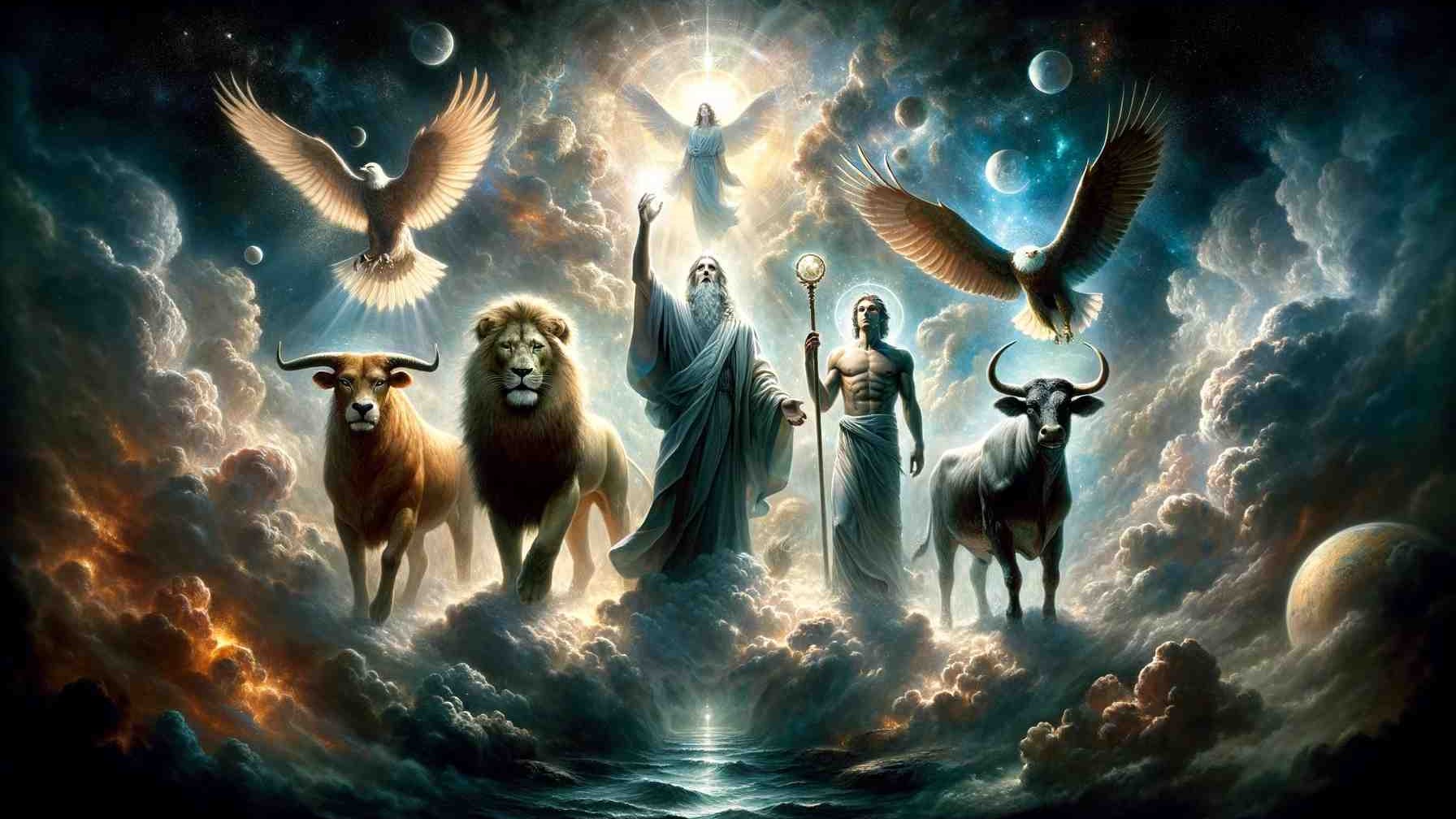Home>Bible Facts>What Is A Major Feature Of Salvation In The Book Of Revelation
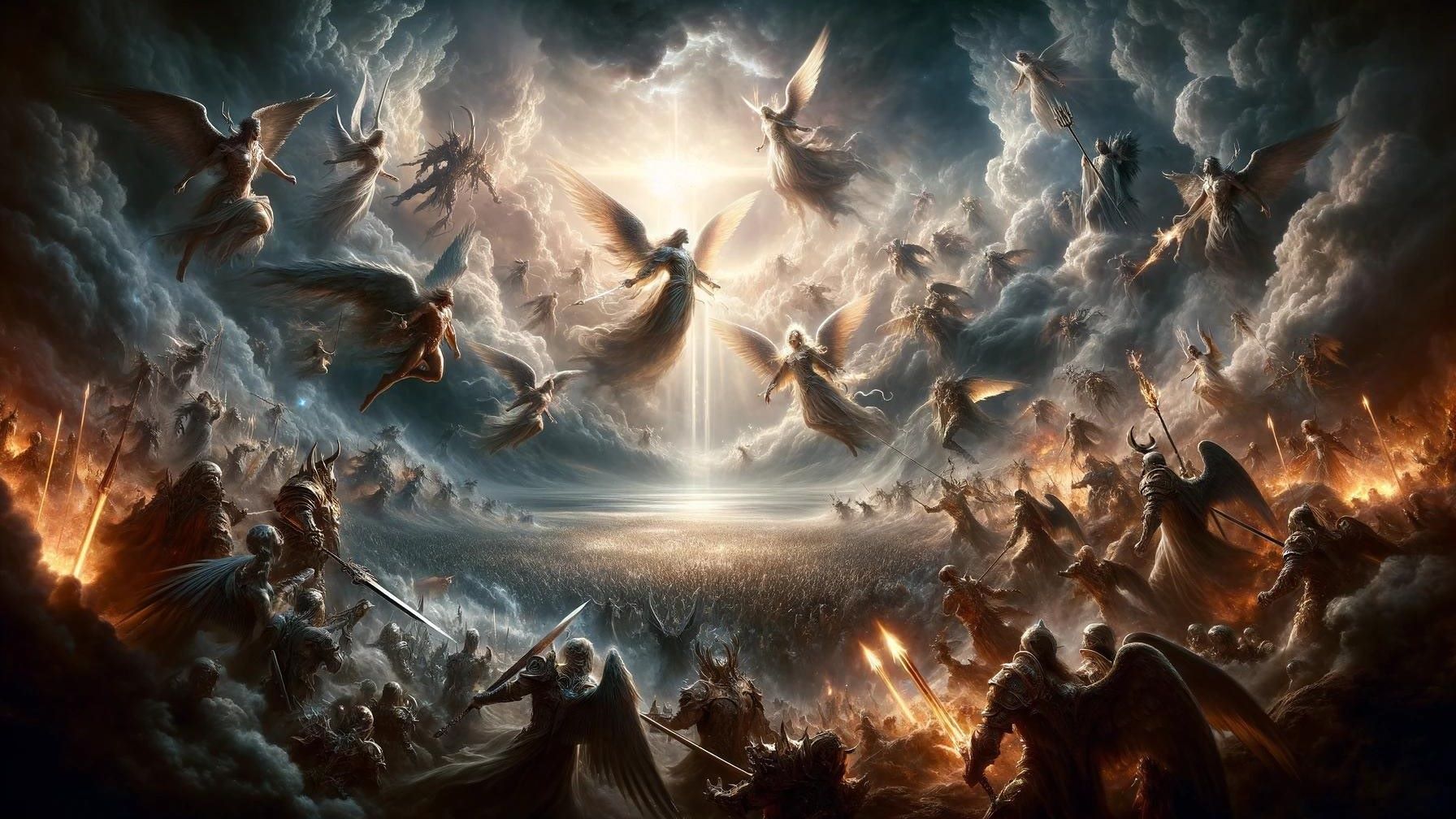

Bible Facts
What Is A Major Feature Of Salvation In The Book Of Revelation
Published: February 11, 2024
Jason DeRose, Managing Editor at Christian.net, uses his expertise in religion and journalism to deepen understanding of faith's societal impacts. His editorial leadership, coupled with a strong academic background, enriches the platform’s diverse content, earning him recognition in both journalism and religious circles.
Discover the major feature of salvation in the Book of Revelation and explore fascinating Bible facts. Uncover the significance of salvation in the biblical context.
(Many of the links in this article redirect to a specific reviewed product. Your purchase of these products through affiliate links helps to generate commission for Christian.net, at no extra cost. Learn more)
Table of Contents
Introduction
The Book of Revelation, the final book of the New Testament, is a profound and enigmatic text that has captivated readers for centuries. It is a book of prophecy, visions, and divine revelations attributed to the apostle John. Within its pages, the concept of salvation emerges as a major theme, offering hope and redemption to humanity amidst the tumultuous events depicted in its apocalyptic imagery.
Salvation, in the context of the Book of Revelation, is a central and compelling concept that resonates deeply with believers. It represents the ultimate deliverance from sin, suffering, and the powers of darkness, offering a path to eternal life and communion with God. As such, understanding the major features of salvation in the Book of Revelation is crucial for comprehending the overarching message of hope and triumph that permeates this profound biblical text.
Throughout the Book of Revelation, salvation is portrayed as a transformative and redemptive process that transcends the temporal realm and extends into the eternal. It is depicted as the culmination of God's divine plan for humanity, offering a way for individuals to be reconciled with their Creator and experience the fullness of His grace and mercy.
In this article, we will delve into the major features of salvation as presented in the Book of Revelation, exploring the pivotal role of Jesus Christ, the promise of eternal life, and the ultimate defeat of evil, which heralds the establishment of God's everlasting kingdom. By examining these key aspects, we aim to illuminate the profound significance of salvation within the context of the apocalyptic visions and prophecies contained in the Book of Revelation.
Read more: What Is Babylon In The Book Of Revelation
The Importance of Salvation in the Book of Revelation
The Book of Revelation underscores the paramount importance of salvation in the grand narrative of human history and divine purpose. Salvation, as depicted in this apocalyptic text, serves as the ultimate deliverance from the pervasive forces of sin, evil, and spiritual separation from God. It is a theme that permeates the entire book, offering a message of hope, redemption, and triumph amidst the tumultuous events and cosmic upheavals described within its prophetic visions.
At its core, the Book of Revelation presents a vivid portrayal of the cosmic battle between good and evil, culminating in the ultimate victory of righteousness and the establishment of God's eternal kingdom. Within this cosmic framework, the concept of salvation emerges as the pivotal means by which individuals can be rescued from the impending judgment and cataclysmic events foretold in the book. It offers a pathway to spiritual renewal, forgiveness, and reconciliation with God, thereby providing a profound sense of assurance and hope in the face of impending tribulations.
Moreover, the Book of Revelation emphasizes the urgency of embracing salvation, portraying it as the essential means of escaping the impending wrath and judgment that will be unleashed upon the earth. The vivid imagery of seals, trumpets, and bowls, depicting divine judgments and cosmic upheavals, underscores the critical need for individuals to seek refuge in the redemptive power of salvation. This sense of urgency underscores the profound significance of salvation as the ultimate means of deliverance from the impending wrath and the restoration of fellowship with God.
Furthermore, the Book of Revelation presents salvation as a transformative and unifying force that transcends cultural, social, and ethnic boundaries. It envisions a future where individuals from every nation, tribe, and language will partake in the blessings of salvation, standing before the throne of God in worship and adoration. This universal scope of salvation underscores its profound importance as a unifying and inclusive force that transcends human divisions and offers the promise of eternal fellowship with God.
In essence, the Book of Revelation underscores the unparalleled importance of salvation as the central theme that undergirds the entire narrative. It offers a message of hope, redemption, and triumph, portraying salvation as the ultimate means by which individuals can be delivered from the impending judgment, reconciled with God, and ushered into the eternal blessings of His kingdom. As such, the importance of salvation in the Book of Revelation cannot be overstated, as it represents the ultimate fulfillment of God's redemptive plan for humanity.
The Role of Jesus Christ in Salvation
The Book of Revelation vividly portrays Jesus Christ as the central figure in the unfolding drama of salvation. His role in the redemptive narrative is pivotal, serving as the embodiment of God's love, mercy, and ultimate sacrifice for humanity. Throughout the book, Jesus is depicted as the Lamb who was slain, symbolizing His sacrificial death on the cross, which serves as the atoning sacrifice for the sins of humanity. This profound imagery underscores the foundational role of Jesus Christ in the process of salvation, offering a pathway for individuals to be reconciled with God and experience the fullness of His grace and mercy.
Moreover, the Book of Revelation presents Jesus Christ as the triumphant and exalted King who holds the keys of death and Hades. His victory over sin and death is central to the message of salvation, offering believers the assurance of eternal life and the hope of resurrection. The portrayal of Jesus Christ as the Alpha and the Omega, the beginning and the end, underscores His eternal and unchanging nature, emphasizing His role as the ultimate source of salvation for humanity.
Furthermore, the book depicts Jesus Christ as the faithful and true witness, the ruler of the kings of the earth, and the Lord of lords. This portrayal highlights His sovereign authority and divine majesty, underscoring His role as the supreme mediator between God and humanity. Through His redemptive work, Jesus Christ offers believers the opportunity to be clothed in His righteousness, thereby gaining access to the blessings of salvation and the promise of dwelling in the presence of God for eternity.
In essence, the Book of Revelation presents Jesus Christ as the central figure in the unfolding drama of salvation, emphasizing His sacrificial death, triumphant resurrection, and exalted position as the King of kings and Lord of lords. His role as the embodiment of God's redemptive love and the ultimate source of salvation underscores the profound significance of His atoning work on behalf of humanity. As believers contemplate the role of Jesus Christ in salvation, they are invited to embrace the transformative power of His grace, the assurance of His victory, and the hope of eternal fellowship with God in His everlasting kingdom.
The Promise of Eternal Life
The Book of Revelation offers a profound and compelling vision of the promise of eternal life, portraying it as the ultimate culmination of God's redemptive plan for humanity. At the heart of this promise lies the assurance of unending fellowship with God, the eradication of suffering and death, and the restoration of all things in a new heaven and a new earth. This vision of eternal life serves as a beacon of hope, inspiring believers to persevere amidst trials and tribulations, knowing that their ultimate destiny is secure in the loving embrace of their Creator.
The promise of eternal life, as depicted in the Book of Revelation, transcends the temporal constraints of mortal existence, offering a glimpse into the timeless reality of God's eternal kingdom. It envisions a future where pain, sorrow, and tears will be no more, where the former things have passed away, and all things are made new. This transformative vision of eternal life serves as a source of comfort and encouragement, reminding believers that their present struggles are temporary, and that an incomparable and everlasting inheritance awaits them in the presence of God.
Moreover, the promise of eternal life in the Book of Revelation is intimately linked to the person and work of Jesus Christ. He is portrayed as the Lamb who was slain, the conqueror of death, and the source of living water that quenches the thirst of all who come to Him. Through His redemptive sacrifice and triumphant resurrection, Jesus Christ offers believers the assurance of eternal life, inviting them to partake in the blessings of the tree of life and to dwell in the presence of God forever.
Furthermore, the promise of eternal life in the Book of Revelation is intricately woven into the fabric of the new creation, where God's dwelling place is among His people, and He will be their God. This vision of eternal life underscores the intimate communion between God and humanity, portraying a future where believers will reign with Christ, serving as priests of God and experiencing the fullness of His glory for all eternity.
In essence, the promise of eternal life in the Book of Revelation serves as a profound and transformative hope, offering believers the assurance of unending fellowship with God, the eradication of suffering and death, and the restoration of all things in a new heaven and a new earth. It is a vision that transcends the limitations of mortal existence, pointing to the timeless reality of God's eternal kingdom, where believers will experience the fullness of His love and grace for all eternity.
The Defeat of Evil and the Establishment of God's Kingdom
The Book of Revelation vividly portrays the ultimate defeat of evil and the triumphant establishment of God's everlasting kingdom as the climactic fulfillment of His redemptive plan for humanity. Within its apocalyptic visions and prophecies, the defeat of evil is depicted as the culmination of divine justice, the vindication of the righteous, and the utter overthrow of the forces of darkness that have sought to oppose God's sovereignty and oppress His people.
At the heart of this profound narrative is the portrayal of the cosmic battle between good and evil, culminating in the decisive victory of righteousness and the vanquishing of all forms of wickedness. The imagery of the dragon, the beast, and the false prophet symbolizes the malevolent forces that have sought to deceive and subjugate humanity, only to be ultimately cast into the lake of fire, signaling their eternal defeat and judgment.
Moreover, the Book of Revelation presents the establishment of God's kingdom as the consummation of His divine purpose, where the reign of Christ is exalted, and His sovereignty is universally acknowledged. The vision of the new heaven and the new earth signifies the renewal and restoration of all creation, free from the taint of sin and corruption, where God's presence illuminates every aspect of existence, and His glory permeates the eternal realm.
Furthermore, the defeat of evil and the establishment of God's kingdom in the Book of Revelation offer believers the assurance of ultimate triumph and vindication. It portrays a future where the faithful are rewarded, the oppressed are liberated, and the righteous reign with Christ in His eternal kingdom. This vision serves as a source of hope and encouragement, inspiring believers to persevere in the face of adversity, knowing that the ultimate victory over evil has been secured through the redemptive work of Christ.
In essence, the defeat of evil and the establishment of God's kingdom in the Book of Revelation offer a profound and compelling vision of the ultimate fulfillment of God's redemptive plan. It underscores the triumph of righteousness, the eternal judgment of evil, and the restoration of all things in the glorious manifestation of God's kingdom. This transformative vision serves as a beacon of hope, inspiring believers to anticipate the consummation of God's redemptive purposes and to eagerly await the dawning of His eternal kingdom.
Conclusion
In conclusion, the Book of Revelation stands as a profound and enigmatic testament to the transformative power of salvation within the grand narrative of human history and divine purpose. Throughout its apocalyptic visions and prophecies, the concept of salvation emerges as a central and compelling theme, offering believers a message of hope, redemption, and triumph amidst the cosmic upheavals and spiritual battles depicted within its pages.
The importance of salvation in the Book of Revelation cannot be overstated, as it represents the ultimate deliverance from sin, suffering, and the powers of darkness, offering a pathway to eternal life and communion with God. The book underscores the paramount significance of embracing salvation as the essential means of escaping the impending judgment and finding refuge in the redemptive power of Christ.
Furthermore, the role of Jesus Christ in the narrative of salvation is pivotal, serving as the embodiment of God's love, mercy, and ultimate sacrifice for humanity. His sacrificial death, triumphant resurrection, and exalted position as the King of kings and Lord of lords underscore the profound significance of His atoning work on behalf of humanity.
The promise of eternal life, as depicted in the Book of Revelation, serves as a beacon of hope, inspiring believers to persevere amidst trials and tribulations, knowing that their ultimate destiny is secure in the loving embrace of their Creator. It transcends the temporal constraints of mortal existence, offering a glimpse into the timeless reality of God's eternal kingdom.
Moreover, the defeat of evil and the establishment of God's kingdom stand as the climactic fulfillment of His redemptive plan for humanity. The ultimate victory of righteousness and the vanquishing of all forms of wickedness offer believers the assurance of ultimate triumph and vindication, inspiring them to eagerly await the dawning of His eternal kingdom.
In essence, the Book of Revelation presents a vivid and compelling portrayal of salvation as the ultimate culmination of God's redemptive plan for humanity. It offers believers a message of hope, redemption, and triumph, underscoring the transformative power of Christ's atoning work and the promise of eternal life in the presence of God. As believers contemplate the profound significance of salvation within the context of the Book of Revelation, they are invited to embrace the transformative power of Christ's grace, the assurance of His victory, and the hope of eternal fellowship with God in His everlasting kingdom.



